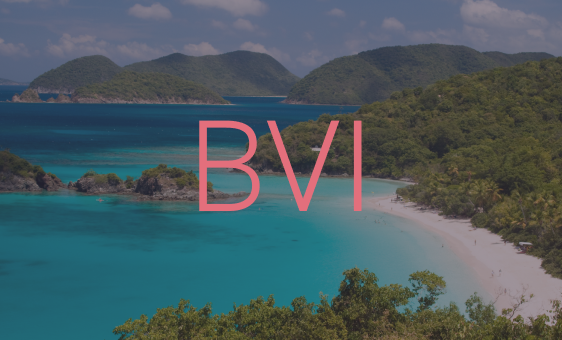The gift in question is an act amending the BVI’s Securities and Investment Business Act, which came into effect on 31 December 2019. Amongst other things, it introduces a regulatory regime for private equity and other closed-ended funds, which have always been unregulated until now. Because such funds have been unregulated, it is not possible to get exact figures, but the BVI has always been understood to be one of the leading offshore centers for these closed-ended funds. So there are three questions for us: what does the legislation say, why has it been introduced, and what does that mean in practice?
The new legal requirements
The legislation creates a new category of fund which is required to make a filing with the BVI Financial Services Commission (“FSC”) in order to receive “recognition” by the FSC on meeting certain published criteria. Regulations supplementing the legislation (“Regulations”) have already been issued.
The new category of fund is called a “private investment fund”, defined as a company, limited partnership, unit trust or any other body which:
- collects and pools investor funds for the purpose of collective investment and diversification of portfolio risk; and
- issues fund interests, which entitle the holder to receive an amount computed by reference to the value of a proportionate interest in the whole or in a part of the net assets of the company, partnership, unit trust or other body.
An entity which does not have the above characteristics will not be a private investment fund and will not be affected by the legislation.
Until now, only mutual funds have been regulated. They have the same two characteristics above, but also allow their investors to cash out (“redeem”) their investments at any time. Private investment funds do not allow investors to come and go at will: the investors are “locked in” until the fund sells its investments.
The legislation prohibits the promotion or operation of a private investment fund unless and until it has been “recognised” as a private investment fund by the FSC although there will be a 21-day grace period from the commencement of carrying on business for making the application for recognition, for private investment funds which are compliant in all respects except for recognition when they start business.
The FSC is able to recognise a private investment fund if it is satisfied that the following conditions are met:
- the fund is lawfully incorporated, registered, formed or organised under the laws of the BVI or of a country outside the BVI; and
- the constitutional documents of the fund specify that:
- the fund is not authorised to have more than 50 investors, or
- an invitation to subscribe for or purchase fund interests shall be made on a private basis only, or
- the fund interests shall be issued only to professional investors with a minimum initial investment (other than for exempted investors) as may be prescribed in the Regulations ((currently USD 100,000); and
- the fund meets such criteria as may be specified in the Regulations; and
- on recognition, the fund will be compliant with the Securities and Investment Business Act, the Regulations, and any practice directions applicable to the fund; and
- recognising the fund is not against the public interest.
A private investment fund will be obliged to comply with and operate in accordance with any restrictions on numbers or type of investors, or on the offering of interests, set out in its constitutional documents, and to maintain financial records.
The legislation sets out penalties for any person operating or promoting, or acting as administrator, custodian or manager for, a private investment fund which has not been recognised.
There is a transitional period ending 1st July 2020 during which existing closed-ended funds can make themselves compliant.
Why has the law been changed?
The changes have not come about because of pressure from investors, or investment managers, or onshore regulators, but because they were required by the European Union (“EU“) as part of its economic substance initiative.
The EU became concerned some years ago that its tax revenues were being eroded by profits for activities within the EU being booked through companies in low- or no-tax countries. While some of the most high-profile examples involved Switzerland, Luxembourg and Ireland, the EU decided to require offshore territories such as the BVI to adopt laws to prevent “profit shifting”. This was done a year ago and as the new economic substance regime beds in, it is becoming clear that the vast majority of BVI companies are engaged in business activities which do not involve profit shifting at all. However, while neither the EU nor the OECD have required funds – whether closed-ended or otherwise – to be included within the economic substance regime, the EU have required that offshore jurisdictions including the BVI introduce an element of regulatory oversight to closed-ended funds. Accordingly the FSC, as financial services regulator, has been tasked with this oversight responsibility.
Many international financial centers (“IFCs“) regulate both open- and closed-ended funds and so they are in a better position to require their funds to provide information. But the BVI, like other Caribbean IFCs, has only regulated open-ended funds until now.
What does the change mean in practice?
The practical impact of the new private equity fund regulation is likely to be quite minor. BVI closed-ended funds have historically been offered and operated subject to limits at least as restrictive as those now set out in the law, so it is very unlikely that many funds will have to change their structure or activities. The filing requirement is broadly the same as the one already applying to many open-ended funds in the BVI and other IFCs such as the Cayman Islands, so it is unlikely to prove too difficult or expensive for funds to comply with in future.
It should be noted that although the regulatory regime for closed-ended funds has been introduced in connection with the EU’s economic substance initiative, carrying on business as a fund (whether closed- or open-ended) is not a “relevant activity” for the purposes of the BVI’s economic substance regime, so unless a fund happens to be carrying on some other relevant activity, it is not subject to the economic substance regime.
We have a global network of experts on hand to advise clients who wish to alleviate the burden of understanding each offshore jurisdiction’s regulatory frameworks and requirements. We have one of the world’s largest offshore regulatory and compliance teams, comprised of experts who not only have first hand knowledge of local regulation, but who have also, in many cases, helped to shape it. In addition, our team are skilled at putting technical regulatory information and decision-making in a commercial context, and clients know that we can assemble the team to deliver an international service, quickly and seamlessly










